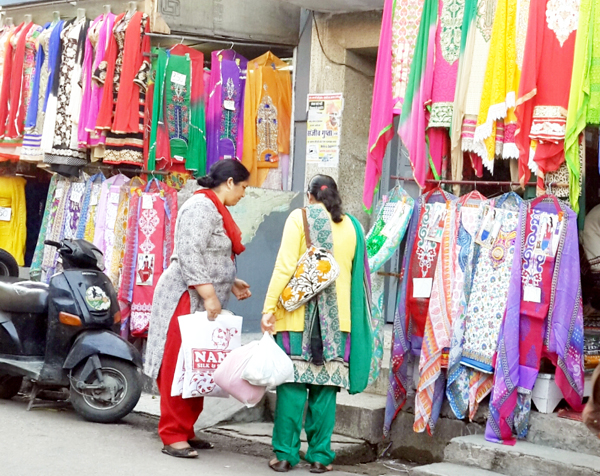Surinder Kumar
Mahatma Gandhi said about a Consumer: “A customer is most important visitor on our premises. He is not dependent on us. We are dependent on him. He is not an interruption in our work-he is purpose of it. We are not doing him a favour. He is doing us a favour by giving us an opportunity to serve him.”
Prevalent consumerism has created uncomfortable problems for the people. It has rendered life meaningless and devoid of charm. The conditions are such that buying and selling have deprived man of the pleasure of life. Man has become a commodity himself for sale in bazaar – a marked object of exploitation. To save a consumer from vicious market forces, the United Nations passed a resolution in 1985, adopting U N Guidelines for Consumer, indicating certain guidelines for the member states to take care of consumer interests, protect them from hazards to the health and make them available cheaper and speedier rederessal.
World Consumer Rights Day (WCRD) is an awareness day, which is observed on March 15, 2015. The WCRD was first celebrated in 1983 and became an important annual occasion for mobilizing citizen action and solidarity within the international consumer movement. The day is an opportunity for promoting the basic rights of all consumers, demanding that those rights are respected and protected and protesting about the market abuses and social injustices which undermine them.
The day takes place on 15 March to mark the definition of consumer rights, outlined by US President John F. Kennedy. He was the first world leader to set out a vision of consumer rights and he also recognized the importance of consumers as a group. Kennedy gave the American consumer four basic rights: the right to safety, to choose, to information and to be heard. The aim of WRCD is to celebrate solidarity within the international consumer rights movement.
The day is organized by Consumers International (CI), which is the world federation of consumer groups that serves as the only independent and authoritative global voice for consumers and was founded in 1960. Currently it has over 220 member organizations in 115 countries around the world.
Our state enacted The J &K Consumer Protection Act 1987, with subsequent amendments made in 1997, 2002 and 2011.
(The Act hereinafter ) The Act has been made to provide protection of the interest of consumers and for that purpose Consumer Councils and authorities for the settlement of consume disputes have been set up. It has been enacted to provide a simpler, speedy and cost effective disposal of the consumer complaints. The Act for the first time introduced the concept of “consumer” and conferred additional benefits on him.
The Act seeks to promote and protect the rights of consumers such as; a against marketing of goods which are hazardous to life and property, b; a right to be informed about the quantity, quality, potency, purity and price of goods, C: right to be assured, wherever possible, of access to the variety of goods at competitive price, d, right to be heard:e, right to seek redressel against unfair trade practice or unscrupulous exploitation of consumer : f, right to consumer education.
How to file a complaint
The Act has provided a mechanism and means for a consumer to avail the benefits.
It is intended to provide relief to those who have suffered loss either for defect in the goods purchased or hired for consideration , or for deficiency in service which is made available to the potential users for a consideration . A consumer can complain against overcharging or for any unfair trade practice indulged in by the service provider. The aggrieved consumer can file a complaint , which will be entertained by the Consumer forum according to the valuation of the compensation sought.
A consumer can file a compliant directly to the Forum without paying any court fee , and without the assistance of a lawyer, if he has no means. If the valuation of the complaint does not exceed RS 10, Lacs the complaint is to be filed before a District Forum and if the valuation exceeds Rs 10 lacs it will be filed in State Commission-a state level body for consumer dispute resolution. It must be noted that only that consumer can seek remedy who has been defined as such by Section 2 (d) of the Act , and buys and hires goods or services against consideration. The act does not apply to the organisations and the Government bodies which provide service free of charges.
The Act, however , has not achieved the desired results because of various reasons. The District Consumer Fora are yet to be made functional at the district headquarters. Nor has been adequate infra structure made available to them. People at large need to be made aware of their consumer rights. A heavy duty is cast on the state in this regard.
Remedies provided under the Act are in addition and not in derogation to the remedies which are available to the consumers under other laws.


